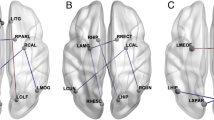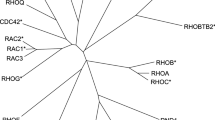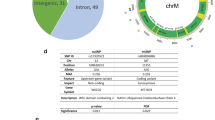Abstract
We aimed at determining whether any association exists between genetic polymorphisms in epoxide hydrolase (EPHX1), NADPH-quinone oxidoreductase (NQO1), glutathione S-transferases (GSTM1/P1/T1) and individual susceptibility to breast cancer. Polymerase chain reaction-restriction fragment length polymorphism-based genotyping assays were used to determine the frequency of polymorphisms in EPHX1 (exons 3 and 4), NQO1 (exon 6), GSTM1 (deletion), GSTP1 (exon 5), and GSTT1 (deletion) in a case–control study comprised of 238 patients with breast cancer and 313 healthy individuals. The distribution of genotypes in exon 6 of NQO1 was significantly different between the control group and breast cancer cases. Age-adjusted odds ratio (OR) for variant genotype NQO1*2/*2 was 3.68 (confidence interval (CI)=1.41–9.62, P=0.008). Association of GSTP1*2/*2 genotype as well as that of low EPHX1 activity deduced by combinations of genotypes in exons 3 and 4 with breast cancer was suggestive, but nonsignificant. Individuals simultaneously lacking GSTM1 and carrying at least one GSTP1 variant allele were at significantly higher risk of breast cancer (OR=2.03, CI=1.18–3.50, P=0.010). Combinations of either GSTM1null or GSTP1*2 with low activity of EPHX1 presented significant risk of breast cancer (OR=1.88, CI=1.00–3.52, P=0.049 and OR=2.40, CI=1.15–5.00, P=0.019, respectively) as well. In conclusion, the results suggest that genetic polymorphisms in biotransformation enzymes may play a significant role in the development of breast cancer.
Similar content being viewed by others
Log in or create a free account to read this content
Gain free access to this article, as well as selected content from this journal and more on nature.com
or
References
Greenlee RT, Murray T, Bolden S, Wingo PA : Cancer statistics, 2000. CA Cancer J Clin 2000; 50: 7–33.
Vineis P, Malats N, Lang M et al (eds): Metabolic polymorphisms and susceptibility to cancer, IARC Sci Publ No. 148, Lyon, France: IARC, 1999.
Raunio H, Husgafvel-Pursiainen K, Anttila S, Hietanen E, Hirvonen A, Pelkonen O : Diagnosis of polymorphism in carcinogen-activating and inactivating enzymes and cancer susceptibility – a review. Gene 1995; 159: 113–121.
Oesch F : Mammalian epoxide hydrases: inducible enzymes catalysing the inactivation of carcinogenic and cytotoxic metabolites derived from aromatic and olefinic compounds. Xenobiotica 1973; 3: 305–340.
Hassett C, Aicher L, Sidhu JS, Omiecinski CJ : Human microsomal epoxide hydrolase: genetic polymorphism and functional expression in vitro of amino acid variants. Hum Mol Genet 1994; 3: 421–428.
Spurdle AB, Purdie DM, Webb PM, Chen X, Green A, Chenevix-Trench G : The microsomal epoxide hydrolase Tyr113His polymorphism: association with risk of ovarian cancer. Mol Carcinog 2001; 30: 71–78.
Traver RD, Siegel D, Beall HD et al: Characterization of a polymorphism in NAD(P)H:quinone oxidoreductase (DT-diaphorase). Br J Cancer 1997; 75: 69–75.
Harth V, Donat S, Ko Y, Abel J, Vetter H, Bruning T : NAD(P)H quinone oxidoreductase 1 codon 609 polymorphism and its association to colorectal cancer. Arch Toxicol 2000; 73: 528–531.
Larson RA, Wang Y, Banerjee M et al: Prevalence of the inactivating 609C → T polymorphism in the NAD(P)H: quinone oxidoreductase (NQO1) gene in patients with primary and therapy-related myeloid leukemia. Blood 1999; 94: 803–807.
Hamajima N, Matsuo K, Iwata H et al: NAD(P)H: quinone oxidoreductase 1 (NQO1) C609T polymorphism and the risk of eight cancers for Japanese. Int J Clin Oncol 2002; 7: 103–108.
Siegelmann-Danieli N, Buetow KH : Significance of genetic variation at the glutathione S-transferase M1 and NAD(P)H:quinone oxidoreductase 1 detoxification genes in breast cancer development. Oncology 2002; 62: 39–45.
d'Errico A, Taioli E, Chen X, Vineis P : Genetic metabolic polymorphisms and the risk of cancer, a review of the literature. Biomarkers 1996; 1: 149.
Pemble S, Schroeder KR, Spencer SR et al: Human glutathione S-transferase theta (GSTT1): cDNA cloning and the characterization of a genetic polymorphism. Biochem J 1994; 300: 271–276.
Mitrunen K, Jourenkova N, Kataja V et al: Glutathione S-transferase M1, M3, P1, and T1 genetic polymorphisms and susceptibility to breast cancer. Cancer Epidemiol Biomark Prev 2001; 10: 229–236.
Park SK, Yoo KY, Lee SJ et al: Alcohol consumption, glutathione S-transferase M1 and T1 genetic polymorphisms and breast cancer risk. Pharmacogenetics 2000; 10: 301–309.
Board PG : Isolation of a cDNA clone and localization of the human glutathione S-transferase 3 genes to chromosome band 11q13 and 12q13–14. Ann Hum Genet 1989; 53: 205–213.
Zimniak P, Nanduri B, Pikula S et al: Naturally occuring human glutathione S-transferase GSTP1-1 isoforms with isoleucine and valine in position 104 differ in enzymic properties. Eur J Biochem 1994; 224: 893–899.
Sweeney C, McClure GY, Fares MY et al: Association between survival after treatment for breast cancer and glutathione S-transferase P1 Ile105Val polymorphism. Cancer Res 2000; 60: 5621–5624.
Sugimura H, Caporaso NE, Shaw GL et al: Human debrisoquine hydroxylase gene polymorphisms in cancer patients and controls. Carcinogenesis 1990; 11: 1527–1530.
Šarmanová J, Tỳnková L, Šůsová S, Gut I, Souček P : Genetic polymorphisms of biotransformation enzymes: allele frequencies in the population of the Czech Republic. Pharmacogenetics 2000; 10: 781–788.
Siegel D, McGuinness SM, Winski SL, Ross D : Genotype-pheno-type relationships in studies of a polymorphism in NAD(P)H: quinone oxidoreductase 1. Pharmacogenetics 1999; 9: 113–121.
Lin PH, Nakamura J, Yamaguchi S, Upton PB, La DK, Swenberg JA : Oxidative damage and direct adducts in calf thymus DNA induced by the pentachlorophenol metabolites, tetrachlorohydroquinone and tetrachloro-1,4-benzoquinone. Carcinogenesis 2001; 22: 627–634.
Arif JM, Lehmler HJ, Robertson LW, Gupta RC : Interaction of benzoquinone- and hydroquinone-derivatives of lower chlorinated biphenyls with DNA and nucleotides in vitro. Chem Biol Interact 2003; 142: 307–316.
Joseph P, Jaiswal AK : NAD(P)H:quinone oxidoreductase 1 reduces the mutagenicity of DNA caused by NADPH:P450 reductase-activated metabolites of benzo(a)pyrene quinones. Br J Cancer 1998; 77: 709–719.
Binaschi M, Bigioni M, Cipollone A et al: Anthracyclines: selected new developments. Curr Med Chem Anti-Canc Agents 2001; 1: 113–130.
Gudmundsdottir K, Tryggvadottir L, Eyfjord JE : GSTM1, GSTT1, and GSTP1 genotypes in relation to breast cancer risk and frequency of mutations in the p53 gene. Cancer Epidemiol Biomark Prev 2001; 10: 1169–1173.
Helzlsouer KJ, Selmin O, Huang HY et al: Association between glutathione S-transferase M1, P1, and T1 genetic polymorphisms and development of breast cancer. J Natl Cancer Inst 1998; 90: 512–518.
Nedelcheva-Kristensen V, Andersen TI, Erikstein B et al: Single tube multiplex polymerase chain reaction genotype analysis of GSTM1, GSTT1 and GSTP1: relation of genotypes to TP53 tumor status and clinicopathological variables in breast cancer patients. Pharmacogenetics 1998; 8: 441–447.
Stucker I, Hirvonen A, de Waziers I et al: Genetic polymorphisms of glutathione S-transferases as modulators of lung cancer susceptibility. Carcinogenesis 2002; 23: 1475–1481.
Wang J, Deng Y, Cheng J, Ding J, Tokudome S : GST genetic polymorphisms and lung adenocarcinoma susceptibility in a Chinese population. Cancer Lett 2003; 201: 185–193.
Toruner GA, Akyerli C, Ucar A et al: Polymorphisms of glutathione S-transferase genes (GSTM1, GSTP1 and GSTT1) and bladder cancer susceptibility in the Turkish population. Arch Toxicol 2001; 75: 459–464.
Nakazato H, Suzuki K, Matsui H et al: Association of genetic polymorphisms of glutathione-S-transferase genes (GSTM1, GSTT1 and GSTP1) with familial prostate cancer risk in a Japanese population. Anticancer Res 2003; 23: 2897–2902.
Vodicka P, Soucek P, Tates AD et al: Association between genetic polymorphism and biomarkers in styrene-exposed workers. Mutat Res 2001; 482: 89–103.
Arms AD, Travis CC : Reference physiological parameters in pharmacokinetic modeling; US Environmental Protection Agency, EPA/600/6-88/004,: 1988.
Coller JK, Fritz P, Zanger UM et al: Distribution of microsomal epoxide hydrolase in humans: an immunohistochemical study in normal tissues, and benign and malignant tumours. Histochem J 2001; 33: 329–336.
Matsui A, Ikeda T, Enomoto K et al: Increased formation of oxidative DNA damage, 8-hydroxy-2’-deoxyguanosine, in human breast cancer tissue and its relationship to GSTP1 and COMT genotypes. Cancer Lett 2000; 151: 87–95.
Laffon B, Perez-Cadahia B, Pasaro E, Mendez J : Effect of epoxide hydrolase and glutathione S-tranferase genotypes on the induction of micronuclei and DNA damage by styrene-7,8-oxide in vitro. Mutat Res 2003; 536: 49–59.
Acknowledgements
We express our sincere thanks to doctors and nurses of Teaching Hospitals in Praha and to all patients and recruited control subjects for their essential help and understanding. Jana Sarmanova was partly supported by stipend of the third Medical Faculty of the Charles University in Prague, Czech Republic. The work at this project was supported by grant of Grant Agency of the Czech Republic, Grant No.: 310/01/1537.
Author information
Authors and Affiliations
Corresponding author
Rights and permissions
About this article
Cite this article
Šarmanová, J., Šůsová, S., Gut, I. et al. Breast cancer: role of polymorphisms in biotransformation enzymes. Eur J Hum Genet 12, 848–854 (2004). https://doi.org/10.1038/sj.ejhg.5201249
Received:
Revised:
Accepted:
Published:
Issue date:
DOI: https://doi.org/10.1038/sj.ejhg.5201249
Keywords
This article is cited by
-
Impact of xenobiotic-metabolizing gene polymorphisms on breast cancer risk in South Indian women
Breast Cancer Research and Treatment (2021)
-
CYP1A1 and GSTP1 gene variations in breast cancer: a systematic review and case–control study
Familial Cancer (2016)
-
Quantitative assessment of the influence of EPHX1 gene polymorphisms and cancer risk: a meta-analysis with 94,213 subjects
Journal of Experimental & Clinical Cancer Research (2014)
-
The NQO1 Pro187Ser polymorphism and breast cancer susceptibility: evidence from an updated meta-analysis
Diagnostic Pathology (2014)
-
The role of epoxide hydrolases in health and disease
Archives of Toxicology (2014)



